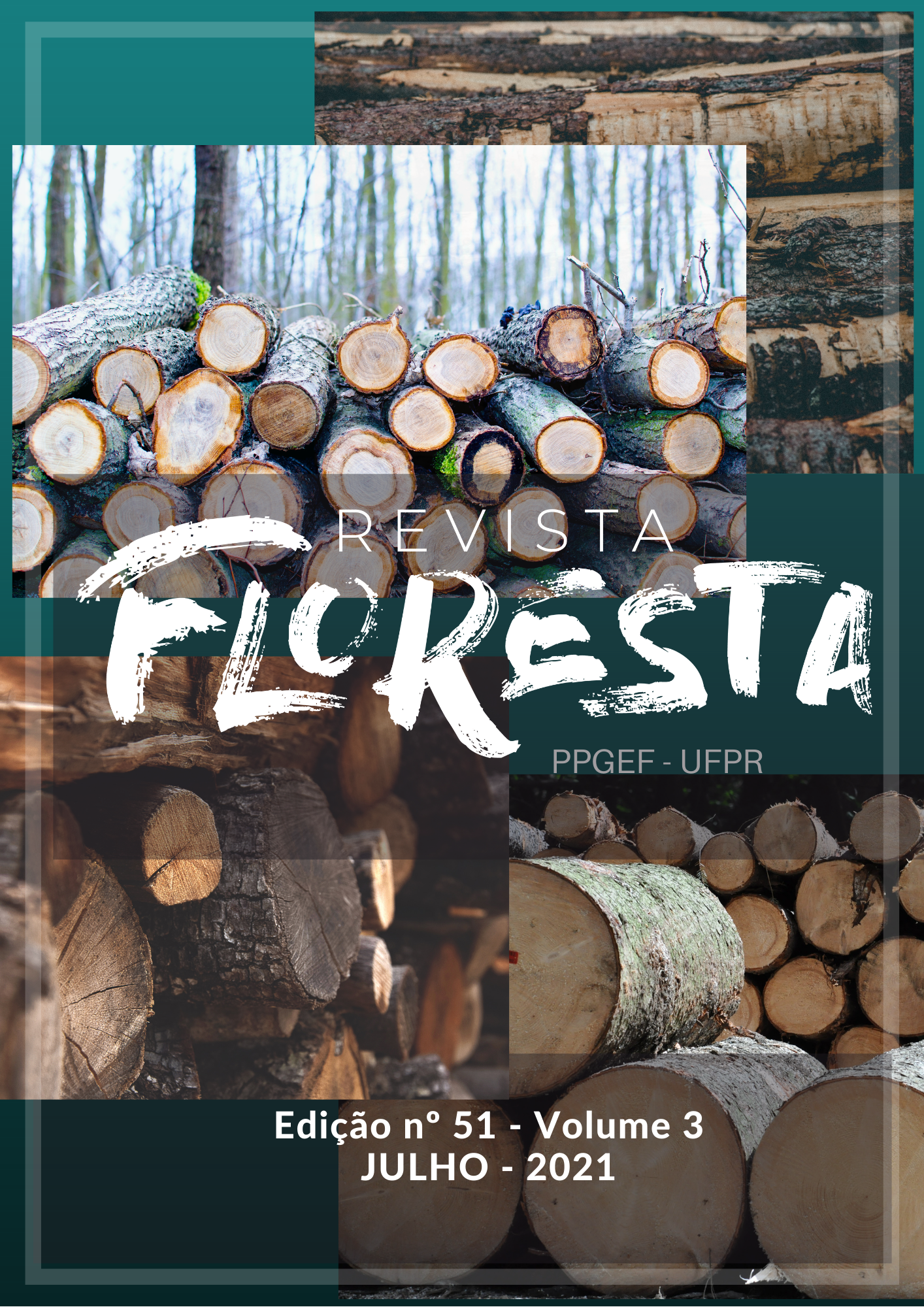OVIPOSITION OF THE GALL WASP LEPTOCYBE INVASA (HYMENOPTERA: EULOPHIDAE) AND MORPHOLOGICAL CHANGES IN EUCALYPTUS SPP. GENOTYPES SUSCEPTIBLE
DOI:
https://doi.org/10.5380/rf.v51i3.72040Palavras-chave:
Forest pests, Gall wasp, SilvicultureResumo
Eucalyptus is grown worldwide for many purposes, as for production of wood, firewood, cellulose and essential oils. Eucalyptus was introduced into Brazil in 1904, and its cultivation has been growing since that time, with about 5.57 million hectares of plantations in 2014. This increase in plantations has favored the native insect populations, some insects have become pests, while other exotic insect pests were introduced such as the gall wasp (Leptocybe invasa), which oviposits in the midrib of leaves, petiole, and in young shoots, causing the formation of galls which compromise the normal growth of plants. In order to evaluate the morphological changes in genotypes of Eucalyptus spp., caused by the galls formation, the anatomical alterations qualitative and quantitatively of the vascular bundles were studied. The results showed that oviposition occurs in the four genotypes studied, but the genotype 1404 is resistant to gall formation, while the susceptibility is low in genotype 1277, medium in genotype 1724 and very high in genotype 1262. The vascular bundles and parenchyma cells in the leaves and petioles were disorganized. The emergence of adult insects caused ruptures in vascular, parenchyma and epidermal cells, resulting in necrosis and foliar droughtness.
Downloads
Publicado
Como Citar
Edição
Seção
Licença
Direitos Autorais para artigos publicados nesta revista são do autor, com direitos de primeira publicação para a revista. Em virtude da aparecerem nesta revista de acesso público, os artigos são de uso gratuito, com atribuições próprias, em aplicações educacionais e não-comerciais.A revista, seguindo a recomendações do movimento Acesso Aberto, proporciona acesso publico a todo o seu conteudo, seguindo o principio de que tornar gratuito o acesso a pesquisas gera um maior intrcambio global de conhecimento.
Conteúdos do periódico licenciados sob uma CC BY-NC-SA 4.0



